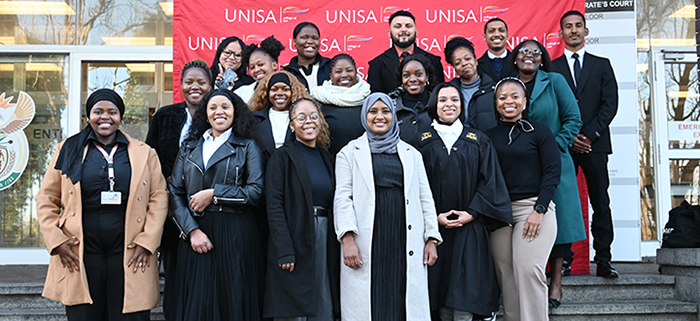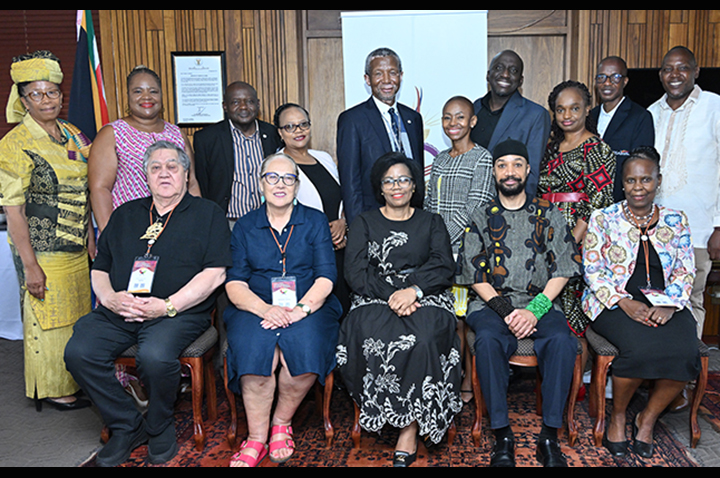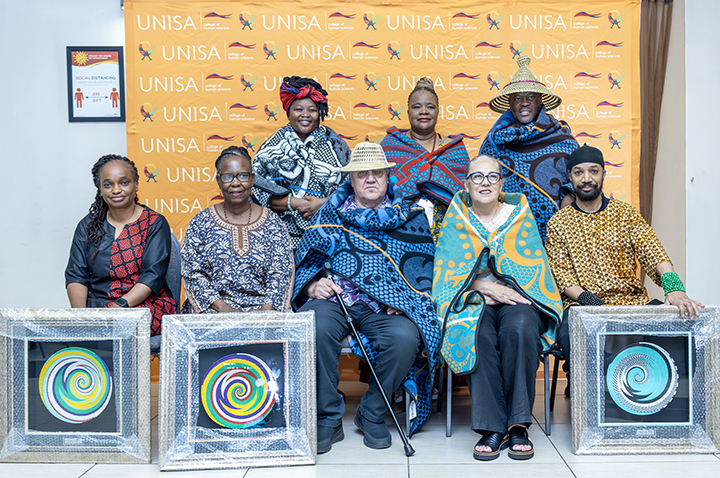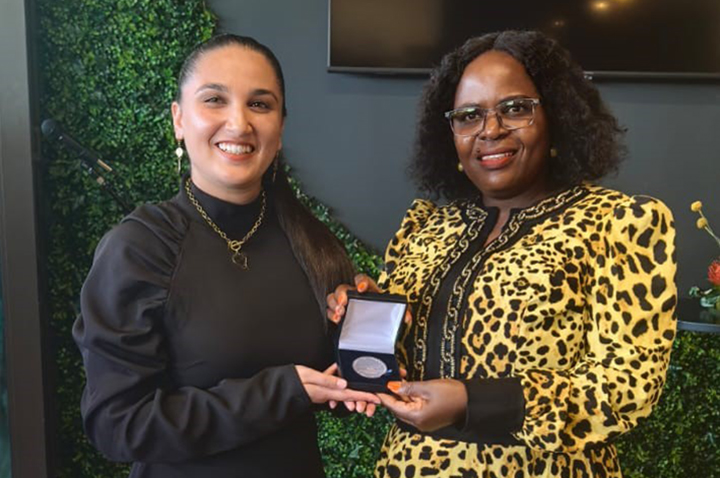
Towards the leading College of Law and Justice in Africa

ULC and NPA collaboration
In an effort to nurture the next generation of legal professionals and to equip students with experiential learning that complements academic theory, Unisa’s Law Clinic (ULC), under the College of Law, in collaboration with the National Prosecuting Authority (NPA), has launched a job shadowing programme at the Wynberg Magistrate’s Court in Cape Town. This dynamic initiative offers law students a rare and invaluable opportunity to witness the inner workings of South Africa’s criminal justice system, further gaining practical insights.
The programme reflects the Law Clinic’s ongoing commitment to transformative legal education. By partnering with state institutions like the NPA, the clinic ensures that its students are not only academically prepared, but also professionally equipped to serve justice with competence, compassion and integrity.
The programme opened with a detailed briefing by Prosecutor Ashleigh Youle, who introduced students to the Criminal Procedure Act – the cornerstone of criminal litigation in South Africa. Students were guided through the key components of a criminal trial, court hierarchies and procedural flow from arrest to sentencing. They learnt about the various types of matters that come before criminal courts, ranging from minor offences such as common assault and petty theft to more serious crimes like robbery and homicide. They also gained insight into the daily functions and responsibilities of key court role players, including prosecutors, magistrates, defence attorneys, interpreters and court clerks.
The purpose of this foundational overview was to help students understand the intricacies of legal processes and the critical importance of due process in upholding justice. The theoretical elements of the briefing were linked directly to what students would later observe in court, reinforcing the importance of legal literacy in both academic and practical contexts.
After the briefing, students were taken behind the scenes into the control room – the administrative heartbeat of the courthouse, where they were introduced to the control prosecutor and senior prosecutor. This unique experience shed light on how court rolls are managed, how matters are allocated and the vital coordination that occurs before a case enters a courtroom.
A review of an actual case docket provided first-hand insight into the procedural build-up of a criminal matter. Students learnt how evidence is compiled, how prosecutors assess charges and how prosecutorial discretion is exercised. Furthermore, they were introduced to various ranks within the prosecutorial structure.
A visit to the courthouse holding cells, where accused persons are detained before appearing in court, highlighted the human impact of criminal proceedings and the critical role that the justice system plays in upholding individual rights while maintaining public order. At the consultation areas, students observed how legal practitioners consult with their detained clients prior to court appearances. This experience underscored the fundamental right to legal representation and illustrated the real-life challenges faced by both clients and lawyers within the confines of the criminal justice framework.
The highlight of the programme was students’ placement in district courts, where they observed live criminal proceedings. Since these courts deal with a variety of matters, students witnessed a broad cross-section of the criminal justice system in action.
Proceedings observed by students included bail applications, where courts determine whether to release accused persons pending trial based on risk, flight likelihood and other factors, as well as maintenance cases, where matters of financial support are adjudicated, often intersecting with family law dynamics. They further observed juvenile matters, where the Child Justice Act requires the courts to adopt a rehabilitative and restorative approach as opposed to a punitive approach when dealing with minors in conflict with the law.
In court, students observed courtroom etiquette, the structure and language of legal arguments and the nuanced roles played by prosecutors, defence counsel and magistrates. Through this exposure, they gained invaluable real-world insights into trial advocacy, evidentiary rules and the administration of justice.
This impactful initiative by the Unisa Law Clinic in partnership with the NPA, reflects a shared vision for a stronger, more accessible legal profession – one that is well-informed, practically trained and socially responsive.
The clinic, long recognised for its commitment to social justice and experiential legal training, continues to push the boundaries of traditional legal education by providing real-time exposure to environments where justice is negotiated and delivered. The collaboration not only strengthens its practical training programme, but also enhances the professional development of students from historically underrepresented backgrounds. The job shadowing programme is more than a training opportunity – it is an immersion into the heart of South Africa’s criminal justice system. It represents a purposeful effort to create well-rounded legal graduates who understand both the theory and practice of law.
By observing real-life proceedings, interacting with seasoned legal professionals and engaging in reflective learning, students develop the legal acumen and ethical grounding needed to contribute meaningfully to the justice system. Through such partnerships, the legal profession can expect graduates who are informed, prepared and committed to justice.
* Compiled by Kgopotjo Lebepe, Communication and Marketing Officer, Unisa Law Clinic
Publish date: 2025-10-01 00:00:00.0
 Foregrounding vocal artistry excellence at Unisa's premier music competition
Foregrounding vocal artistry excellence at Unisa's premier music competition
 Unisa academics to lead Professional Board of Psychology at HPCSA
Unisa academics to lead Professional Board of Psychology at HPCSA
 Unisa reaffirms its commitment to decolonial scholarship
Unisa reaffirms its commitment to decolonial scholarship
 Fostering global collaboration to advance the decolonial agenda
Fostering global collaboration to advance the decolonial agenda
 Persistent Unisan awarded the prestigious Johannes Voet Bar Medal
Persistent Unisan awarded the prestigious Johannes Voet Bar Medal